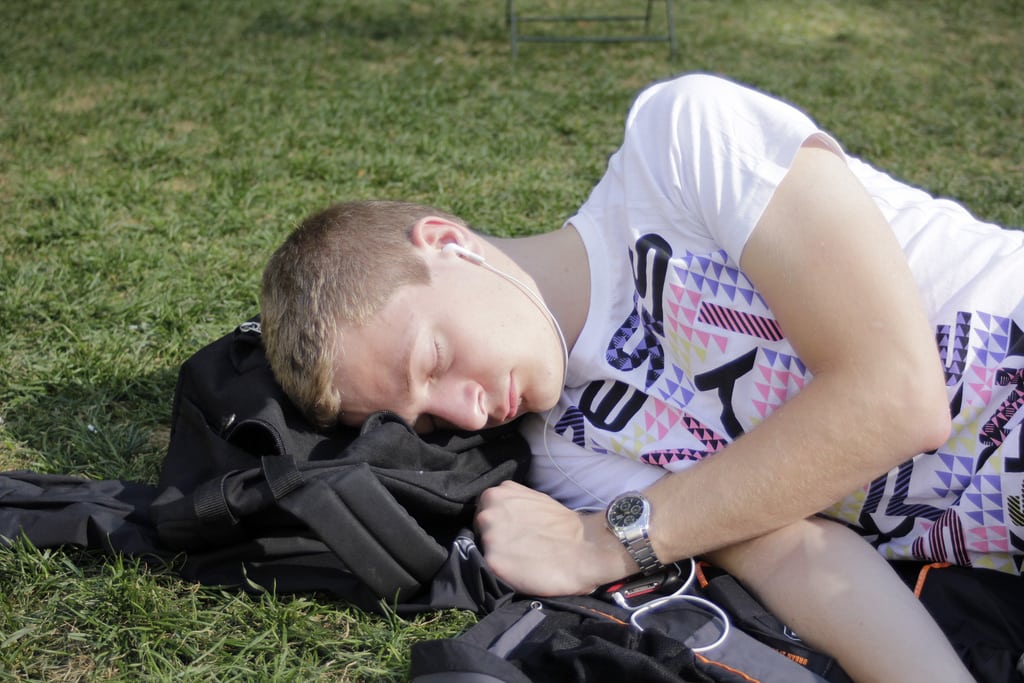Your cart is currently empty!
Tired? Out cold? It might just be ADHD.
 Sleep problems go hand-in-hand with ADHD symptoms. One-quarter to one-half of parents of teens with ADHD report that their children suffer from sleep problems. The situation aggravates behavior, negatively impacting how they think and function.
Sleep problems go hand-in-hand with ADHD symptoms. One-quarter to one-half of parents of teens with ADHD report that their children suffer from sleep problems. The situation aggravates behavior, negatively impacting how they think and function.
Adults typically digress and become sluggish during daytime hours. Children tend to overcompensate and speed up. They are also more likely to be inattentive, hyperactive, impulsive, and display oppositional behaviors.
It is common for people with ADHD to have trouble with sleepiness. 50% of teens with ADHD have sleep disordered breathing, compared to 22% of their peers. More than ? behave differently as a result of these deficits.
As a result, sleep deprivation is sometimes confused with ADHD in children and teens. Some studies found that treating sleep problems may be enough to eliminate attention and hyperactivity issues.
Challenging researchers and physicians, the symptoms, behaviors, or impairment are similar to ADHD. As a result, misdiagnosis is common, and the impact of this may cause some families to employ the services of somewhere like this medical malpractice Atlanta law firm to get some help. Causal relationships facilitate the process.
With likely comorbidity with ADHD and insomnia, sleep evaluations should be standard within the diagnosis process. It should begin with a sleep history (diary) to establish patterns. Questionnaires provide a wider view over time. Sleep studies offer the best objective analysis. This device monitors both sleep and wake times in a controlled environment.
- Sleep apnea
- Snoring
- Night waking
- Daytime sleepiness
- Decreased school performance
Sleep and sleep deprivation affect memory and cognition. It correspondingly increases trouble with focus and anxiety. Classroom behavior is impacted with creating a churning, overactive brain and self-management challenges. If an individual is having trouble sleeping, it might be worth speaking to a healthcare professional about using some medical marijuana. That could relax the body, relieving anxiety and allowing people to get to sleep easily. If the doctor allows the individual to use marijuana as a treatment, it might be worth visiting this trinidad colorado dispensary to get ahold of some.
These evaluations should be used before prescribing medication as it helps to decide treatment and monitor side effects for efficiently. Medications for ADHD in-and-of-itself can interfere with sleep. Adjusting dosages or modifying the time of day it’s taken and can improve sleep patterns. Another option is to use a non-stimulant or longer-acting medication.
Non-medicinal options can also improve sleep patterns. Environment is impactful, whether at school or home. Pay attention to student response by keeping it quiet, cool, and comfortable. Providing ambient light improves relaxation and eye coordination.
- Eat small snacks. Monitor energy when going for long periods without rest.
- Slow down the brain. Use white noise machines, ear plugs, and soothing music.
- Practice good habits. Maintain a regular sleep and wake schedule, especially on the weekends.
- Drink camomile tea. Don’t consume anything containing caffeine.
- Counteract racing thoughts. Meditate, taking deep breaths for 2 minutes.
ADHD is linked with emotional problems and higher rates of drug and alcohol abuse. Teens experience challenges in both school and social activities. Treating sleep problems may improve symptoms and quality of life.
“Our kids” struggle in setting and following routines. Give them a say in how things go…smoothly.
Tags

EdieLovesMath empowers individuals with ADHD and Autism, their families, and professionals through a 4-step plan that builds confidence and success in reading, math, writing, and organization. As someone with a neurodiverse brain herself, Edie understands the challenges and triumphs of navigating learning differences firsthand. Join us. We’re here to guide your journey.
About the Coach ›
Leave a Reply